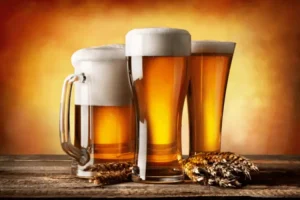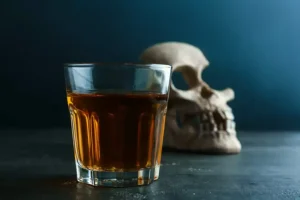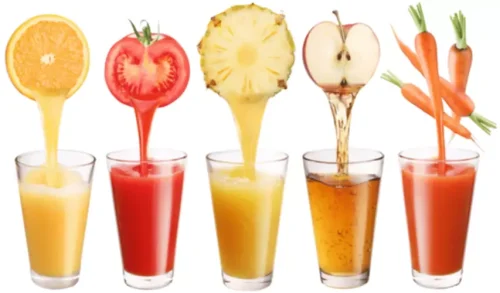Alcoholism and Psychiatric Disorders PMC

Mild symptoms usually start within 6 hours after you stop drinking as much alcohol as your body has become used to. That’s because a lot of people with AUD don’t is alcoholism a mental illness want to quit drinking or find it really hard to stay sober. You might even avoid seeking treatment or admitting that you have an issue because of that.
Mental health disorders that commonly co-occur with AUD

Addiction not only involves the individual suffering, but their partner, their family, and their friends as well. Loved ones can provide immeasurable support, but they almost take care of themselves throughout an often difficult journey. Some have criticized Alcoholics Anonymous and other 12-step programs because https://ecosoberhouse.com/ they are rooted in religious ideology rather than scientific principles. Some also disagree with the notion of admitting powerlessness to God or a higher power and completely ceding control, and the belief that addiction is a disease, a point vigorously debated in the clinical and scientific communities.
What are the types of alcohol-induced psychosis?
Therefore, the clinician’s job is to combine the data obtained from the multiple resources cited in the previous section and to establish a working diagnosis. It may be helpful to begin this process by differentiating between alcohol-related symptoms and signs and alcohol-induced syndromes. Thus, the preferred definition of the term “diagnosis” here refers to a constellation of symptoms and signs, or a syndrome, with a generally predictable course and duration of illness as outlined by DSM–IV. A BAC of 0.09% to 0.25% causes lethargy, sedation, balance problems and blurred vision.
Lifestyle Changes
Tailored for women with substance abuse issues, this support group meets either in-person or online. Another barrier to receiving care is that doctors screen only about 15% of their primary care patients for AUD. At this point, AUD symptoms start to interfere with your personal and work life. For instance, you might miss important family events or meetings with co-workers because you’ve been drinking. Physical symptoms such as weight gain (or loss) usually show up in this mid-stage, too. For instance, you may start drinking so much that you black out (lose consciousness).

Dual addictions and dependencies
When patients report mood symptoms, it helps to clarify the possible relationship with alcohol use by asking, for example, about mood symptoms prior to starting alcohol use and on extended periods of abstinence. In addition, ask about current and past suicidal ideation or suicide attempts, as well as the family history of mood disorders, AUD, hospitalizations for psychiatric disorders, or suicidality. People with severe or moderate alcohol use disorder who suddenly stop drinking could develop delirium tremens (DT). It can be life-threatening, causing serious medical issues like seizures and hallucinations that require immediate medical care. Slips can be fueled by withdrawal symptoms, mental health challenges, and drug-related cues, such as spending time with old drinking partners or visiting old drinking locations.

Alcoholism with Comorbid, Independent Psychiatric Disorders
Mental and emotional symptoms occur long before physical symptoms appear. If behavioral or mental symptoms aren’t appropriately treated, long-term alcohol abuse can lead to physical complications such as cirrhosis of the liver, chronic brain deterioration and, the most serious consequence of all, death. Like depression and other mental illnesses, addiction is a very real medical disorder that is rooted in brain changes—but the condition is so much more complex than that. In earlier versions of the DSM, alcoholism was categorized as a subset of personality disorders. If you feel that you sometimes drink too much alcohol, or your drinking is causing problems, or if your family is concerned about your drinking, talk with your health care provider. Other ways to get help include talking with a mental health professional or seeking help from a support group such as Alcoholics Anonymous or a similar type of self-help group.

My Loved One Needs Help
An overall emphasis on the AUD component may come first, or an emphasis on the co-occurring psychiatric disorder may take precedence, or both conditions can be treated simultaneously. The treatment priorities depend on factors such as each patient’s needs and the clinical resources available. As with anxiety and mood disorders, it can help for a healthcare professional to create a timeline with the patient to clarify the sequence of the traumatic event(s), the onset of PTSD symptoms, and heavy alcohol use. One way to differentiate PTSD from autonomic hyperactivity caused by alcohol withdrawal is to ask whether the patient has distinct physiological reactions to things that resemble the traumatic event. When patients who drink heavily report anxiety, it helps to create a timeline with them to discern whether the anxiety is alcohol-induced or, instead, a pre-existing or primary anxiety disorder, which can help set expectations and a treatment plan.
Bipolar disorder and AUD
During the first week of the current hospitalization, the patient’s suicidal ideation disappeared entirely and his mood gradually improved. He was transferred to the open unit and participated more actively in support groups. His denial of his alcoholism waned with persistent gentle confrontation by his counselors, and he began attending the hospital’s 12-step program. Three weeks after admission, he continued to exhibit improvement in his mood but still complained of some difficulty sleeping. However, he felt reassured by the clinician’s explanation that the sleep disturbance was likely a remnant of his heavy drinking that should continue to improve with prolonged abstinence. Nevertheless, the clinician scheduled followup appointments with the patient to continue monitoring his mood and sleep patterns.
- The idea that altered forms of consciousness such as mania or alcohol can enhance creativity is a popular belief.
- With all alcoholic beverages, drinking while driving, operating an aircraft or heavy machinery increases the risk of an accident; many countries have penalties for drunk driving.
- While this can feel good for a short time, this effect doesn’t last for long.
- Many law enforcement agencies consider a .08 percentage of alcohol in your bloodstream as evidence of intoxication.
- Mild is classified as 2 to 3 symptoms, moderate is classified as 4 to 5 symptoms, and severe is classified as 6 or more symptoms, according to the DSM-5.
Laisser un commentaire